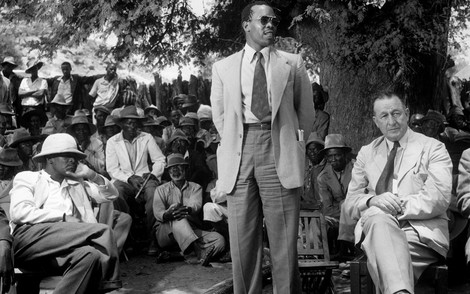Your podcast discovery platform
Curious minds select the most fascinating podcasts from around the world. Discover hand-piqd audio recommendations on your favorite topics.

piqer for: Boom and bust Globalization and politics Global finds
Associate Professor of Economics at George Mason University and currently a National Fellow at the Hoover Institution, Stanford. Educated at Oxford, Mark's main interests lie in economic history and comparative development. He is currently writing a book (with Noel Johnson) on the origins of religious freedom in western Europe. He has also published papers on state formation in Europe and China, weather shocks and pogroms in the middle ages, and private policing in 19th century England. More details about his research can be found on his webpage. He also blogs at Medium and Notes on Liberty.
How Nations Stay Together
Why do some nations fall apart while others remain together? In this essay, Andreas Wimmer considers the role a shared history and language play in answering this question.
Ambitious nation-building efforts in Iraq and Afghanistan in the early years of the 21st century failed. But there are examples from history of successful nation-building. Wimmer seeks to understand what factors explain why some societies, such as Botswana, have succeeded in forging a national identity, whereas others, such as nearby Somalia, have failed to do so.
According to Wimmer, this is not a simple matter of economics. Among rich countries, Belgium remains deeply divided along ethnic and linguistic lines and is not a cohesive nation-state. In contrast, Switzerland, which is also divided between different linguistic and religious groups, is a highly functional state.
What accounts for these contrasts? Wimmer points to history. First, a history of voluntary associations, particularly associations that cut across ethnic, religious or linguistic divides, matters. These voluntary organizations might include trade unions, social clubs, or community groups. Voluntary organizations of this kind can ensure that minorities are not excluded from the political process. Switzerland, according to Wimmer, illustrates this.
A second factor is the provision of public goods. Broad-based provision of basic public goods such as schools can generate a constituency for political parties that cross ethnic or linguistic divisions.
The third factor Wimmer highlights is language. Linguistic diversity doesn't always mean that a state will fall apart, as evidenced by Switzerland. But linguistic differences are often important fractures along which states split, as proved to be the case in the Soviet Union in 1989.
The shadow of the past means that building nation-states from the outside is next to impossible. But indigenous state building can succeed if the conditions are right.
